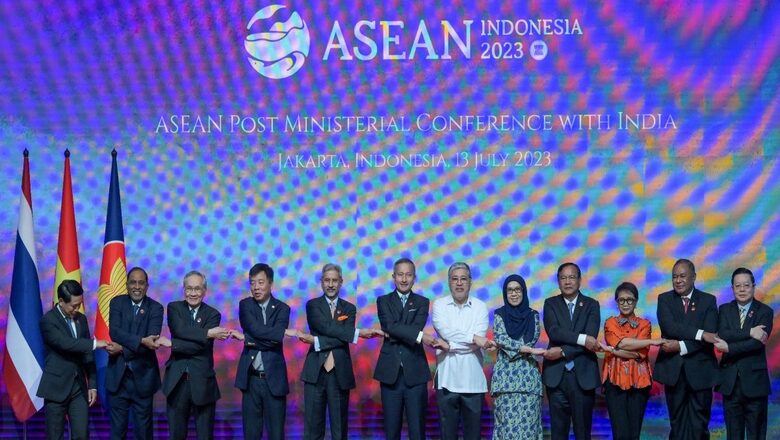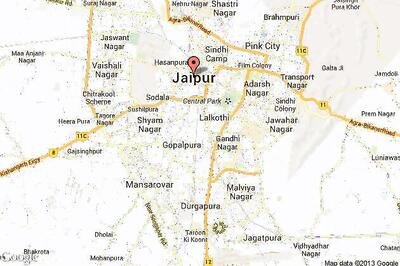
views
Even as Prime Minister Modi is hosting the G20 Summit in a grand way (from September 9-10) with major global leaders, he made it a point to embark upon a two-day visit to Indonesia from today to attend the 20th ASEAN-India Summit and 18th East Asia Summit. The two summits will be hosted in Jakarta by Indonesia, the current Chair of ASEAN.
For India and ASEAN (Association of Southeast Asian Nations), this summit will be the first since the two decided to elevate their relationship to a comprehensive strategic partnership (2022). Apart from the importance New Delhi attaches to its relationship with ASEAN per se, which is also critical to the promulgation of its Act East policy, PM Modi also wished to honour his host and friend, Indonesian President Joko Widodo, who will be coming to New Delhi for the G20 Summit after hosting it in 2022, when he handed over the baton to PM Modi.
I remember attending a CII Conference in the 1990s when the then Prime Minister of Singapore was a keynote speaker and I distinctly recall his words that “India only looked to the West and had not been as keen to engage with its natural habitat – the East”. Happily, Indian attention veered towards the East and the ASEAN that has, in terms of internal integration, achieved significant success through consensus.
The trajectory of cooperation is pretty impressive. Starting as ‘Sectoral Dialogue Partner’ in 1992 and then ‘Full Dialogue Partner’, India and ASEAN became strategic partners by the time they celebrated the 20th anniversary of their collaboration. By the time they finished 25 years, they had already decided to enhance collaboration in the maritime domain which is a critical element in the ever so accentuated geo dynamic of the Indo-Pacific, Indian Ocean and the South China Sea.
India continues to believe and propagate that ASEAN’s centrality to the Indo-Pacific, for peace or development, remains the cornerstone of its regional engagement.
Another milestone was the 30th anniversary in November 2022 when at the 19th ASEAN-India Summit, the ‘Strategic Partnership’ was elevated to ‘Comprehensive Strategic Partnership’ and a “Joint Statement on ASEAN-India Comprehensive Strategic Partnership” was released. Three decades may not be a long time but the institutional and dialogue mechanisms that have been created in regional and bilateral formats attest to the importance that the two attach, from security to economy to political consultations to defence to cultural to P2P engagement to counter-terrorism and cyber security, S&T etc. Even within the context of QUAD, the provision of vaccines manufactured in India would be for the ASEAN and other regional countries.
Institutional mechanisms are robust and responsive. There is a Foreign Ministers Meeting format (AIFMM) as well as that of the Senior Officials one (AISOM) apart from several working groups. All these culminate in the leadership ASEAN-India Summit. Delhi Dialogue hosted by India’s External Affairs Minister, S Jaishankar, further enhances engagement with ASEAN countries. In particular, India regularly participates in the meetings of the East Asia Summit (EAS), ASEAN Regional Forum (ARF), ASEAN Defence Ministers Meeting+ (ADMM+) and the Expanded ASEAN Maritime Forum (EAMF) meetings and its supporting processes. PM Modi had also invited all the ASEAN leaders as special and chief guests on Republic Day to underscore the importance India attaches to the ASEAN and its Act East policy.
India’s engagement with the ASEAN has been driven by key objectives of enhancing connectivity between India and ASEAN in the broadest sense of the term (physical, digital, people-to-people, business etc.); strengthening the ASEAN organisation; and expanding practical cooperation in the maritime domain. ASEAN countries like Myanmar and Thailand have been key to the physical connectivity and blending of the Act East policy with the Neighbourhood First policy, especially through the BIMSTEC and various connectivity corridors which have acquired greater momentum as the China-India-Pakistan dynamic remains adversarial and on tenterhooks.
Apart from strategic considerations, trade and economic exchanges continue to be the driving force. India-ASEAN Free Trade Agreement was one of the first to be signed and is now being reviewed to expand its functionality and utility. Therefore, the ASEAN-India Trade in Goods Agreement (AITIGA, signed 2009, in force 1 January 2010); the ASEAN-India Agreement for Trade in Services (AITISA, signed 2014, all parties ratified it in 2018) and the Agreement on Investment (signed 2014, has been finalised, ratified by all parties) have become major institutional frameworks for economic engagement. Bilateral trade for the first time crossed the $100 billion mark with 2021-22 recording $110.4 billion even as the balance of trade remained in favour of ASEAN. This aspect is often discussed during the Economic Ministers meetings as well as the high-level interactions to develop a mutually beneficial relationship. Likewise, greater efforts are being made to enhance investments which remained rather low during the two decades (2000-2019) — only a total of $118 billion, of which $115 billion came in from Singapore alone which is an offshore destination for major FDIs.
Moreover, these ten ASEAN countries have close and even controversial and conflictual relationships with China, dictated by geography and Beijing’s hegemonistic tendencies in the South China Sea. There are dependencies and realpolitik, hence they mostly follow pragmatic policies. They even joined the China-led RCEP (Regional Comprehensive Strategic Partnership Agreement) from which India opted out due to strategic considerations. Recent cartographic aggression by China (new maps) has engineered more distrust among India and many of the ASEAN countries on whose sovereignty the Chinese hegemony and aggression tend to trample. This provides coagulating contours for the India-ASEAN partnership. ASEAN is also facing challenges from within, with the unsalutary and challenging developments and democracy deficit in Myanmar, which impact on its unified group image.
India’s commitment to deepening the historic ties with ASEAN is governed by 3 Cs – Commerce, Connectivity and Culture, and if one adds the potential conflict with another C in the region, it should make them obvious natural partners for a dynamic regional balance.
PM Modi will discuss all the sub-regional, regional and global issues of mutual concern with the ASEAN leaders at the bilateral, and at the East Asia Summit with other leaders, many of whom will head to New Delhi for the G20 Summit and will contribute to the most important outcomes that will impact on global wellbeing and welfare, especially that of the Global South, which India so avidly champions including the converting of G20 into G21 by permanent membership of African Union (AU).
Anil Trigunayat is the former Indian Ambassador to Jordan, Libya and Malta and currently Distinguished Fellow with Vivekananda International Foundation. Views expressed in the above piece are personal and solely that of the author. They do not necessarily reflect News18’s views.


















Comments
0 comment